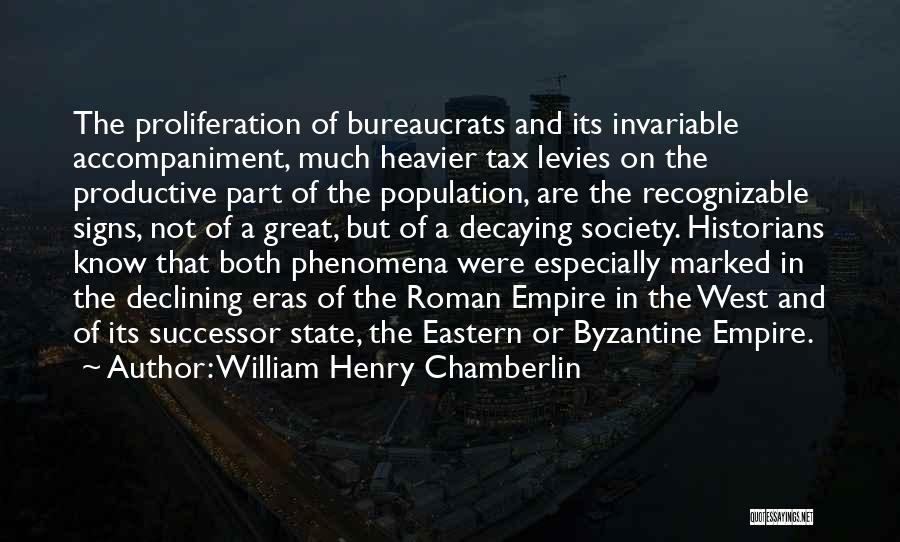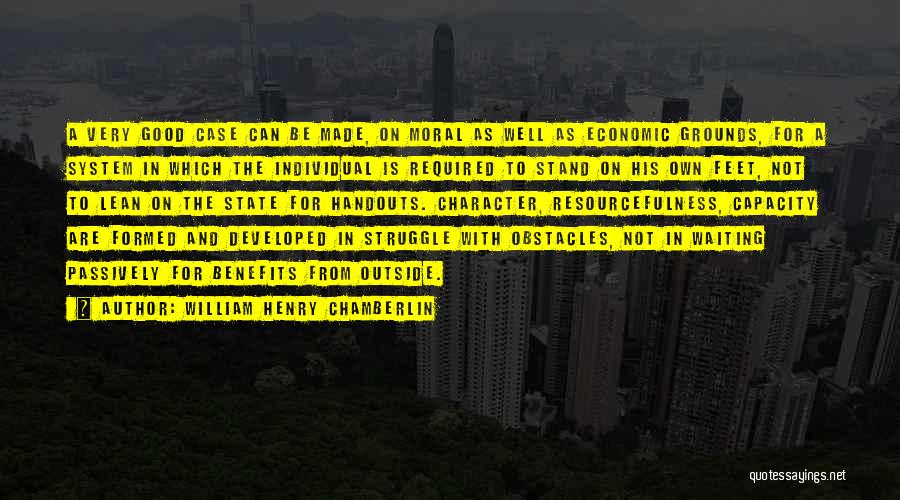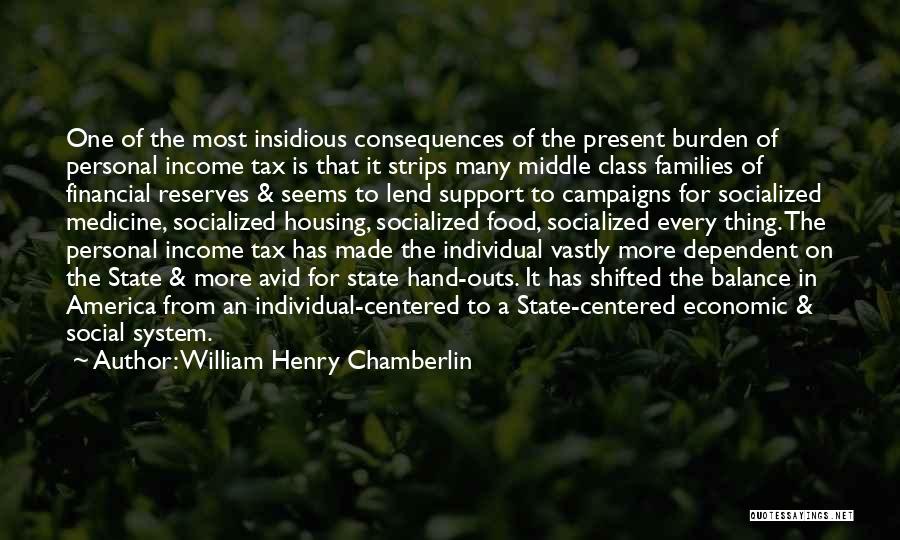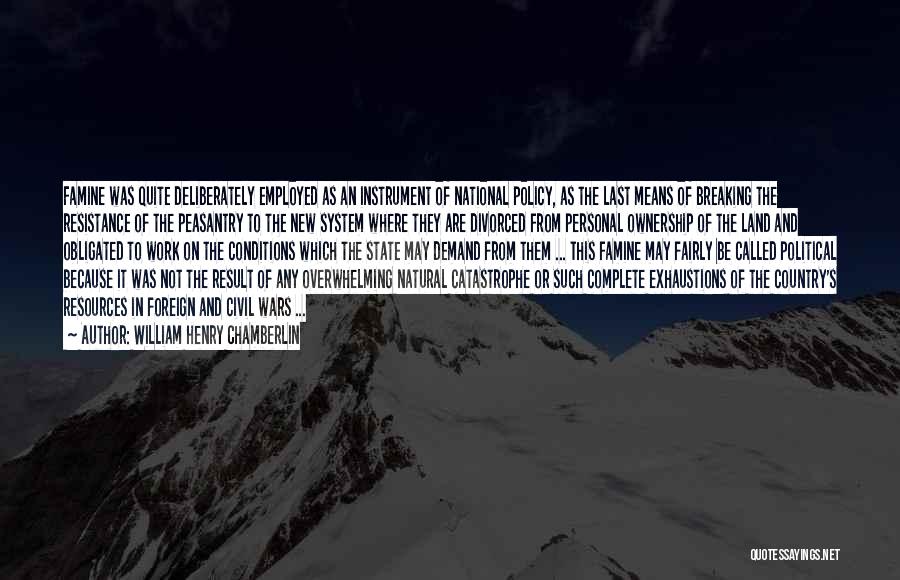William Henry Chamberlin Quotes & Sayings
Enjoy the top 4 famous quotes, sayings and quotations by William Henry Chamberlin.
Famous Quotes By William Henry Chamberlin

The proliferation of bureaucrats and its invariable accompaniment, much heavier tax levies on the productive part of the population, are the recognizable signs, not of a great, but of a decaying society. Historians know that both phenomena were especially marked in the declining eras of the Roman Empire in the West and of its successor state, the Eastern or Byzantine Empire. — William Henry Chamberlin

A very good case can be made, on moral as well as economic grounds, for a system in which the individual is required to stand on his own feet, not to lean on the state for handouts. Character, resourcefulness, capacity are formed and developed in struggle with obstacles, not in waiting passively for benefits from outside. — William Henry Chamberlin

One of the most insidious consequences of the present burden of personal income tax is that it strips many middle class families of financial reserves & seems to lend support to campaigns for socialized medicine, socialized housing, socialized food, socialized every thing. The personal income tax has made the individual vastly more dependent on the State & more avid for state hand-outs. It has shifted the balance in America from an individual-centered to a State-centered economic & social system. — William Henry Chamberlin

Famine was quite deliberately employed as an instrument of national policy, as the last means of breaking the resistance of the peasantry to the new system where they are divorced from personal ownership of the land and obligated to work on the conditions which the state may demand from them ... This famine may fairly be called political because it was not the result of any overwhelming natural catastrophe or such complete exhaustions of the country's resources in foreign and civil wars ... — William Henry Chamberlin





